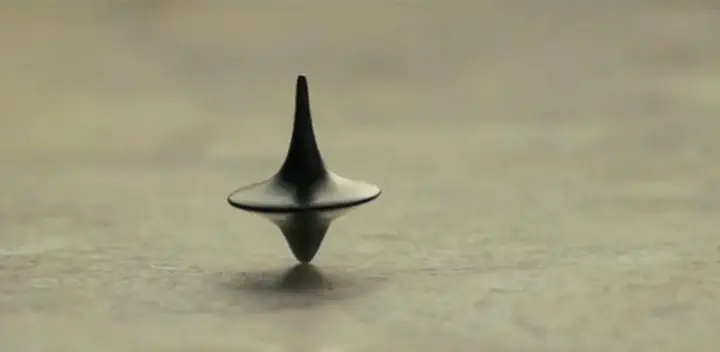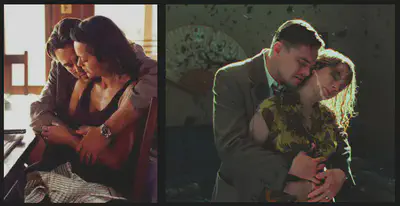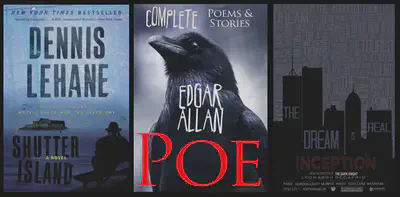Delving into Dreams

In the summer of 2010, like many others I was captivated by the mind-bending storyline and visuals of Christopher Nolan’s Inception. Following Leonardo DiCaprio as Cobb on his struggle to get back to his children, the film introduced the unique concept of navigating through dreams - and dreams within dreams. At the time I saw the movie, I was staying at a rented holiday house in Falmouth, Massachusetts on the southern tip of Cape Cod. It was the appropriate New England setting for me to stumble upon Dennis Lehane’s novel, Shutter Island, as I was shuffling through a stranger’s bookshelf. Shutter Island had just been adapted to the big screen by Martin Scorsese a couple months before Inception and also starred DiCaprio, this time as Teddy Daniels, a U.S. marshal investigating a missing patient case at a hospital for the criminally insane off the coast of Boston Harbor.
Two films with drastically different tones and plots, and yet deeply rooted similarities - beyond just the Leo-connection! - which didn’t come to mind until I opened Lehane’s book. The first thing I saw was the epigraph. A short and deceptively trivial extract from Questions of Travel, by Elizabeth Bishop.
… must we dream our dreams and have them, too?
The Spinning Tabletop
In her poem, Bishop ponders on the need to travel if one can rely on his or her own mind and imagination. How can that apply to a cop trapped on a gloomy island? The movie version of Shutter Island is faithful to the book in the way it uses the protagonist’s dreams - or rather, nightmares - as a periscope into his subconscious to set up clues for a final shocking twist. We learn that Teddy Daniels is not a cop, but a patient of the mental institution, living out his own fantasy. The reveal is rendered even more effective as we follow the story from Teddy’s perspective and are drawn into his paranoia. We are on his side. We ask ourselves until the very end: Is he sane or mad? What was in his head and what actually happened? What was real and what was a dream?
These very same questions and another enigmatic ending are what made Inception a cultural phenomenon. The famous last shot of a spinning tabletop - the embodiment of DiCaprio’s character’s grasp on reality - left audiences without a definite answer. Countless internet theories argued whether he had in fact been reunited with his family or if this was just one of the many dreams of his children we see over the course of the movie. In that sense, both stories draw upon the Freudian interpretation of dreams as “wish fulfilment”. The characters see what they want to see as their own unconscious way to resolve a past emotional clash.
Inception is highly reminiscent of Edgar Allan Poe’s poem from 1849, ‘A Dream Within a Dream’, which also deals with the ambiguity of reality.
…Is all that we see or seem But a dream within a dream?
While I couldn’t find an interview where Christopher Nolan cites the poem as an inspiration, it ties into the comparison between Inception and Shutter in more ways than one.
Trauma of Loss
 |
|---|
| Cobb and Mal (Inception) - Teddy and Dolores (Shutter Island) |
Did you know that the word ’trauma’ comes from the Greek for ‘wound’? And what is the German word for ‘dream’? Traum. Ein Traum. Wounds can create monsters, and you, you are wounded, Marshal.
This powerful quote from the movie Shutter Island - which is not in the book - speaks volumes about Teddy’s mindset and could also easily apply to Cobb in Inception. Their trauma, wounds and dreams share a common tragic origin. Just as Edgar Allan Poe in ‘A Dream Within a Dream’ begins by stating “Take this kiss upon the brow! And, in parting from you now”, the catalyst for the lead’s inner conflict in both films is the loss of his wife. The wives of Shutter Island and Inception are not exactly “ideal” partners. Their fatal actions leave in their wake much grief and pain, living up to their names: Dolores and Mal respectively (from Latin, meaning sorrow and evil). Both fall into manic depressions, losing track of reality. Dolores drowns her children before asking her husband to kill her. Mal commits suicide after threatening to take her son and daughter with her.
They continue to appear in their husbands’ dreams not only as loving memories but also as mysterious antagonistic figures. We moreover learn that both Cobb and Teddy had their share of responsibility in their wives’ fate, adding to their distress and justifying the sense of guilt expressed in their nightmares.
Lost at Sea

The last point I wanted to mention relates to the opening sequence in Inception, as pictured above. The first images are prolonged shots of waves crashing against the shore in slow motion. Finally, we see DiCaprio, lying barely conscious on the beach, reaching out - in vain - for what seems to be his children making a sand castle in the distance. Hallucination? A dream within a dream. This shore, clawing away at crumbling buildings, is but an imaginary state of “limbo” where the mind loses itself.
There is an unavoidable resemblance between this scene and Poe’s poem. He indeed laments about a “pitiless wave” on a “a surf-tormented shore” and speaks of holding to “grains of golden sand” throughout ‘A Dream Within a Dream’ to symbolize death and time passing.
Waves and the sea are ever-present threats on Shutter Island, particularly through the protagonist’s eyes. We are constantly reminded that swimming off towards the mainland would in all certainty be fatal. Water is also there in Teddy’s dreams as a dangerous entity. In the book, the sentence “why are you all wet?” is repeated without clear meaning. It is only at the end that the reader is told this was the last thing he said to his wife, before realizing she had gone out to drown their children.
I found these many connections, while not obvious at first glance, to be difficult to “unsee” and speak for the unique qualities of dreams as storytelling tools. They purposefully disorientate as much as subtly divulge information on the characters. It is not surprising for Edgar Allan Poe, Dennis Lehane and Christopher Nolan - adepts of the strange and mysterious - to have this common interest.
Do you see any other similarities between the movies, or with any other work? Let me know in a comment!
